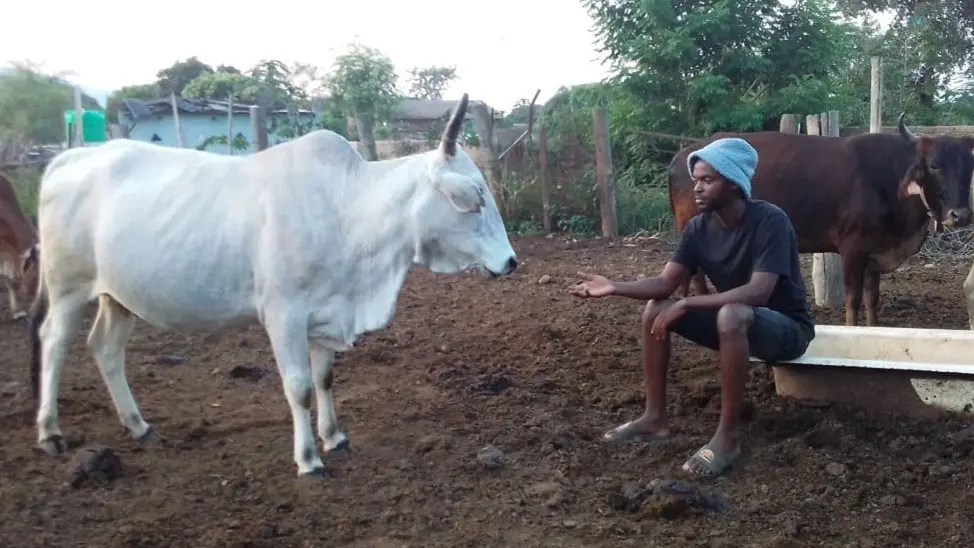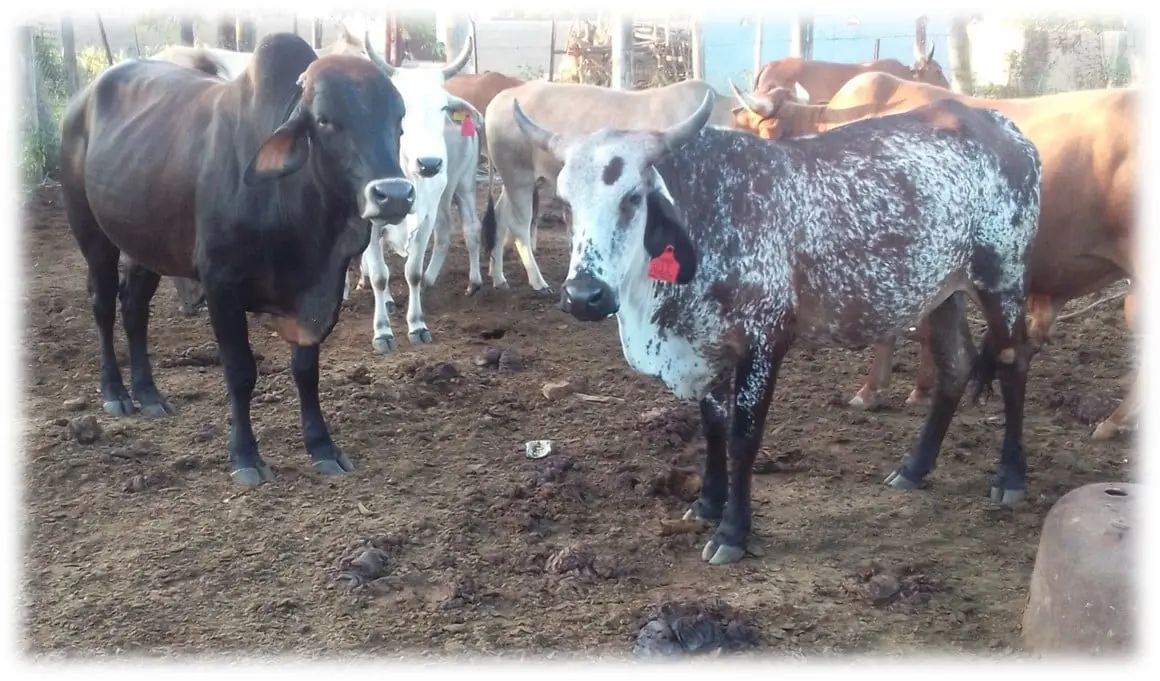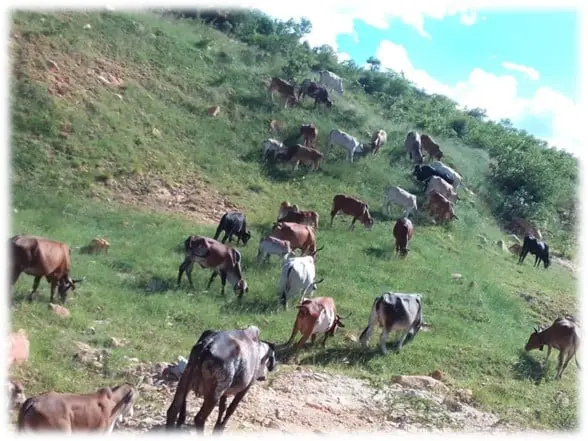
Ashell Maenetja, is a young passionate communal livestock farmer residing in Tlhabeleni village, greater Letaba municipality just outside Tzaneen Town in Limpopo province, South Africa. Ashell runs a small beef herd of Brahman and crosses (Brahman x Nguni) and recently introduced indigenous goats to his productions. Ashell comes from a farming family, both late parents farmed cattle, indigenous chickens, geese and turkeys.
My love, passion stems from parents whom involved me in their day to day operations. Curious and eager to learn, I shadowed both my parents who taught me that nothing beats passion, commitment, and good work ethics and above all, one ought to be teachable.
All my life, I have been working cattle as a Sheppard and in recent years as Farm monitor trainee, farm manager and agricultural advisor; I juggled academics with herding cattle. I was that kid who looked after cattle in the mountains as a Sheppard, simultaneously studying! I attended school in the morning till afternoon; upon reaching home I would exchange my school uniform for boots and overalls. Graduating high school, I enrolled with Stellenbosch University in Western Cape Province to study Bachelor of Science in Agriculture (BScAgric) (Animal Science). I followed my passion and it was nothing short of difficulties. My late Mom was then a widow and I rhetorically often said she sold her soul to the devil to get me through university. Cattle embodies my late parents, symbolises their forever presence and hope or better tomorrow.

Ashell Bonding with his herd Matriarch, Favourite cow named Guardian Angel
With unemployment crisis in South Africa, opportunities are far and few in between; I manage my livestock on full time basis – self-employment. Farming livestock on communal land is stressful and extremely difficult. We experience difficult challenges on a regular basis however the joy that comes with working cattle outweighs all the challenges.
We don’t have title deeds, land is owned by Tribal Authorities. Grazing land, grain and vegetable plots are turned into residential areas. Farming is seldom prioritized, scarcely promoted and encouraged. Man-made veld fires are mostly initiated by individuals who collect firewood or want to chop trees. Bush is cleared by fire unfortunately with severe consequences. Certain plants species are on the brink of extinction. Biodiversity is greatly compromised and wild fruits that used to be available in abundance are very scarce. Lack of food availability and accessibility forces wild animals’ migration to the villages which result in wildlife-human conflict. Poaching and livestock theft wreak havoc in our community and threatens our livelihoods, people poaching and trapping animals with snares contribute significantly to livestock losses. Both small stock and large stock gets caught, ultimately rot away or end up in a dinner plate. With livestock theft at an all-time high, livestock identification is still foreign concept. Animal health and welfare is ignored hence recurrence of disease outbreaks. Inbreeding is very common which results in poor reproductive efficiency including high mortality rates in calves, poor growth rates and high frequency of hereditary abnormalities. Challenges faced are endless that renders farming in rural areas less productive.

Herd sire named Nelson by Ashell’s Great friend, Willemijn Heideman from Amsterdam, Netherlands
I have instilled principles in my farming operations which aimed at enhancing overall productivity; I sell all male weaners to feedlots, select heifers based on breeding soundness evaluation. Any cow that experiences dystocia (slow or difficult labor or delivery), with poor mothering ability, low milk production and is aggressive towards handlers gets culled. I value disposition in my herd. Any calf with health challenges before weaning is sold to feedlots post weaning. My bull: cow ratio is 2 bulls to 25 cows (heifers included) or less, bearing in mind our bulls grazes with our cow herd all year around. We follow a vaccination program and during drought, provide cattle with supplements. My livestock browse different tree species and graze.

Some of Ashell’s cattle herd out grazing
Knowledge and information is of great importance, I make it a mission to learn from every individual I meet. While actively seeking for employment opportunities to compensate my farming operations, I have plans to uplift my communities through knowledge sharing and skills transfer. That is possible through farmers’ collaboration, coming together to learn from fellow farmers and inviting specialists in the field of farming to share their expertise. It is more difficult than I thought, I am met with “what do you know, you’re a still kid” attitude. Changing mindset of elderly farmers will most probably be my biggest hurdle. I’m planning to put my farm management and agriculture extension experience to better use.
Raising awareness about livestock improvement, record keeping, health/vaccination plan, livestock identification including branding, tattooing and tagging, dehorning and castration of inbred bulls predominantly with poor genetics. Issues that require urgent attention include livestock theft and poaching and pollution in our community which significantly affect livestock and humans.
They say it takes a village to raise a child; I’m hopeful it will take same village to help me give back to the community and enhance our farming productions. Food security and accessibility through agriculture/farming should be the backbone of every community, consequently use it to address social issues like poverty, crime & violence, unemployment, social inequality, climate change and many more that cripples our society in large.